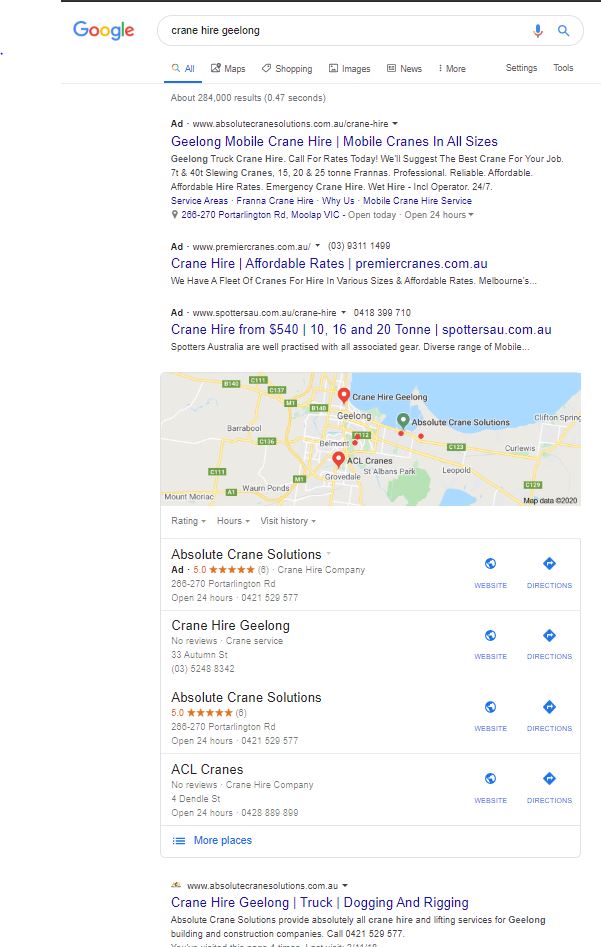In 2019, Google introduced a new format in mobile search results which included a “favicon” next to the website name. This week Google has launched a similar format for desktop search results.
If you regularly search Google on a desktop you’ll notice the change, If you’re a mobile user like myself its basically the mobile view but on a computer screen.
Fact – There are more searches on mobile phones than on desktop devices. Therefore it makes sense that Google is basing their new desktop view off a mobile landscape. Why? Because it’s been tried and tested for a while now and the mobile search numbers seem to be increasing even further.
With this change there have been studies to suggest some users think that favicon results are ads. The removal of the green “Ad” symbols, coupled with the introduction of the favicons is the reason searchers are having trouble distinguishing between an ad and an organic result.
In fairness, this new format lists every single website with an icon and at a glance its hard to distinguish the “Ad” symbol next to ads. Therefore those people who readily avoid clicking on ads will likely be influenced into unintentionally doing so.
Is this change a bad thing & what it means for Google Ads?
It’s a great change if you’re running Google Ads. If you rank well organically it’s not bad, it simply means more people might choose to click on an ad thinking it’s a higher organic result.
If you rank well you might not think you need Google Ads… you’re wrong, Google Ads are increasingly prominent and appear for most service/product searches. If you rank well organically you have the opportunity to absolutely dominate the search results and take up more real estate on Google.
See below example of a client (Absolute Crane Solutions) who dominate Google search for what they do best “crane hire Geelong“.
- 1st Google ad position.
- In the Google Maps 3-pack with an ad.
- In the Google Maps 3-pack in 2nd position.
- 1st position organic ranking.
The chances are quite high someone will land on their beautifully built responsive website and ultimately engage their services.
New analysis from SEOmoz (my go-to authority on all things Google) shows an increasing decline of clicks on Google organic search results. These declines are a result of people choosing to click on ads instead. I use the word ‘choosing’ loosely, most people on Google can’t distinguish between an ad and organic result, especially on the new Google desktop layout. Google is making this harder and harder to identify with their latest changes.
Paid clicks have more than doubled in the last two years and we can expect paid ads to continue to dominate.
The conspiracy – I love a good conspiracy theory
Surely with all the changes in how Google displays ads over the years they have reached their limits when it comes to hiding ads. Instead they’re going for the option of making all results appear very similar. We can assume Google is smart enough to know exactly what they’re doing and has tested all changes thoroughly before rolling them out.
It’s not a matter of if, but when businesses will incorporate Google Ads into their marketing strategy to remain competitive online. After all this is how Google make 90% of their revenue, it’s in their best interest to encourage clicking on ads and as a result influence advertisers to invest in Google Ads. This will certainly mean more participation in paid Google Ads.
Conclusion
People are identifying ads less often, the number of people who identified ads on the old Google search layout was super low. This new favicon format doesn’t seem to have changed that and has actually made identification of ads less accurate.
We think this is great news if you’re running Google Ads. Not so great if you’re one of those people who hate clicking on ads, truth is you most likely are without knowing it!
Appreciate Google Ads, learn and love them, then play ball and adapt to Google’s changes that’s how to level up your online marketing in 2020!
As an official Google Partner, please contact us to answer any of your questions regarding Google Ads.

